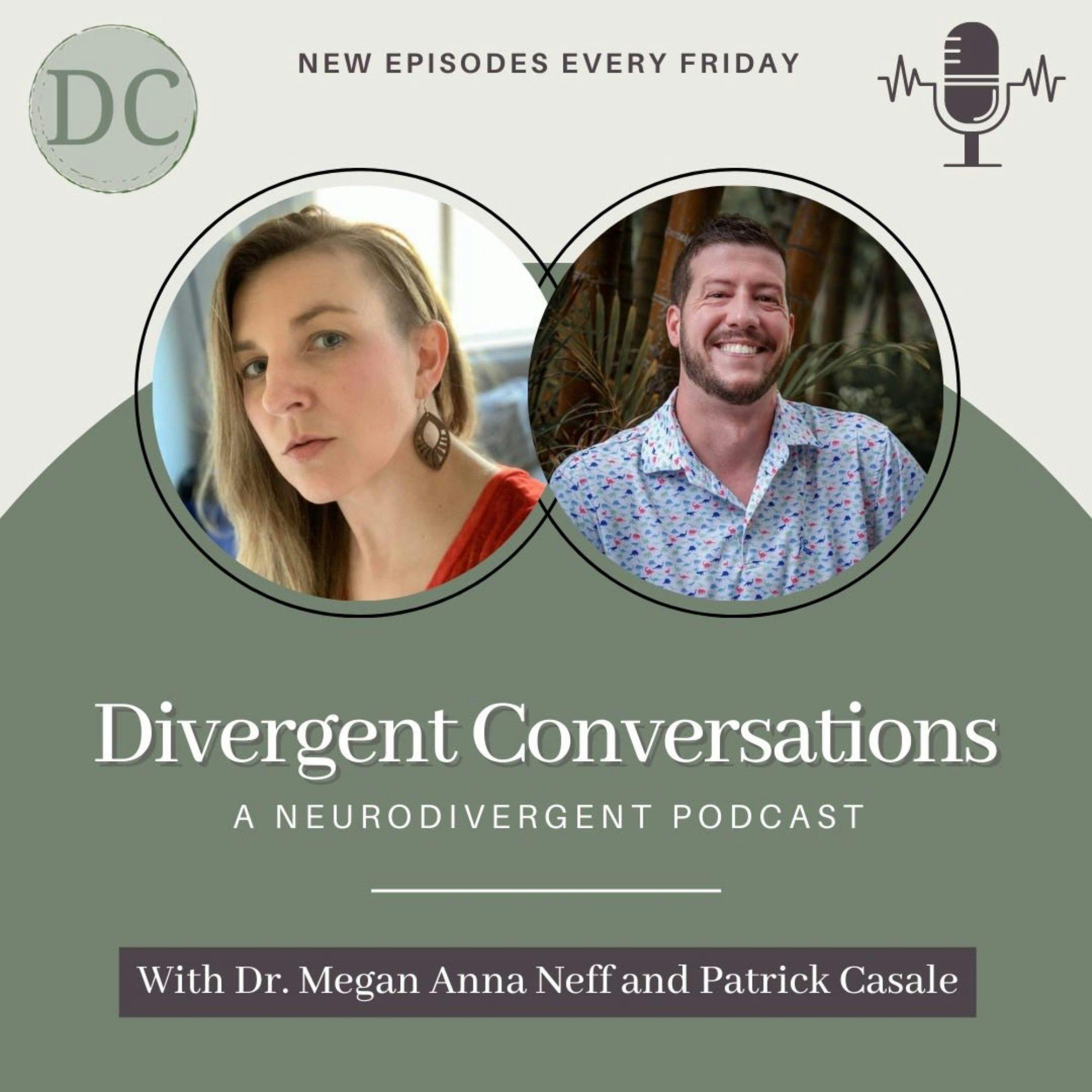“What is Autism?” (Part 4): Special Interests and Complex Sensory Experiences
Description
Navigating a world packed with all sorts of seemingly mismatched sensations, either overstimulating or understimulating, and having passionate interests that can appear as all-consuming to others, can be challenging and greatly impact the way we build relationships and even just get through the day.
In this episode, Patrick Casale and Dr. Megan Anna Neff, two AuDHD mental health professionals, talk about the nuances and misconceptions surrounding special interests and sensory experiences for Autistic people.
Top 3 reasons to listen to the entire episode:
Learn about the role of special interests in fostering connections for Autistic individuals, and how personal sensory nuances impact relationships with oneself and the world around them.
Gain insights into how to create more inclusive autism assessments that acknowledge the diverse experiences of Autistic individuals, including behaviors, sensory experiences, or interests that might be more stereotypically associated with allistic individuals.
Understand the different sensory systems and explore the broad spectrum of sensory experiences that influence everything from social interactions and relationships to meeting basic necessities of food, clothes, and shelter.
Think about how we all experience the world differently and why it's important to make space for those differences so that we can honor who we are and have more compassion for one another.
Resources:
For this conversation, we are using Is This Autism By Dr. Donna Hendreson, Dr. Sarah Wayland, and Dr. Jamell White. You can find it here. But wait...
The publisher is giving our listeners a special coupon during this series! Use Code: NDI24 to get 30% off and free shipping Valid through 6-Jul 2024 (must purchase using this link)
We’ll be reading this book for our book club in June in the Neurodivergent Learning Nook. Learn more about our community here.
DISCLAIMER: We're using the DSM-5 criteria as a framework for this conversation, but this is not our endorsement of the DSM. There have been a lot of very thoughtful critiques of the DSM in the last several years, including how autism is presented in the DSM as very deficit-based. We do not align with that view, but we did use that as a framework to walk through our experience of autism and to unpack the many ways that those criteria could show up in a person. This is our attempt to help demystify the process of diagnosis, which has historically been very obscure and hard to understand.
——————————————————————————————————
🎙️Listen to more episodes of the Divergent Conversations Podcast here
🎙️Spotify
🎙️Apple
🎙️YouTube Music
▶️ YouTube
——————————————————————————————————
A Thanks to Our Sponsors: Freed & The Receptionist for iPad
✨ Freed:
I would also like to thank Freed for sponsoring this episode.
Being a clinician in today's medical or mental healthcare field can be overstimulating. It can be so hard to focus on clients while taking adequate notes. Freed.AI listens, transcribes, and writes medical documentation for you, written in your style and ready the moment the visit is over. No more overstimulation or letting things fall through the cracks. Freed is HIPAA compliant, secure, and takes less than 30 seconds to learn. More importantly, Freed supports your executive function skills, so you can get back to doing what you love — helping your clients.
Go to getfreed.ai and use code DCPOD for your first month free.
✨ The Receptionist for iPad:
I would also like to thank The Receptionist for iPad for sponsoring this episode.
The Receptionist offers an iPad list check-in option where clients can scan a QR code to check in, which negates the need for you to buy an iPad and stand. Go to thereceptionist.com/privatepractice and sign up for a free 14-day trial. When you do, you'll get your
More Episodes
Premenstrual Dysphoric Disorder (PMDD) is an often misunderstood and misdiagnosed condition and yet has a profound impact on the lives of the people who are experiencing it.
In this episode, Patrick Casale and Dr. Megan Neff, two AuDHD mental health professionals, talk with Jes Hagen, a...
Published 05/03/24
Published 05/03/24
For many Autistic individuals, the consistency of routines isn't just nice, it's a way to accommodate the sensory needs of their systems. Routines are reflected internally and externally, and the disruption of these routines can result in great distress.
In this episode, Patrick Casale and Dr....
Published 04/19/24


